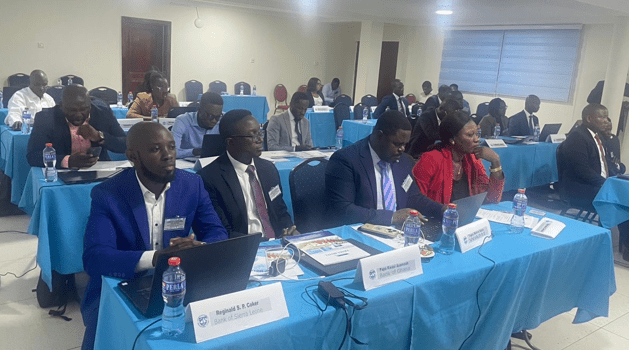A joint regional course on financial programming and policies is underway, bringing together experts from the International Monetary Fund (IMF) and the West African Institute for Financial and Economic Management (WAIFEM) to train participants on diagnosing and addressing macroeconomic imbalances.
The course, held at a critical time for the global and regional economy, aims to equip policymakers and economists from West African central banks, finance ministries, and other institutions with skills to develop effective policy frameworks supporting economic stability and growth.
In his opening remarks, Dr. Baba Musa, Director General of WAIFEM, highlighted the course’s importance given current economic challenges.
“Financial programming entails designing a comprehensive set of policy measures to respond to macroeconomic challenges and set desirable goals,” Dr. Musa explained. “The goals could be to maintain or improve upon a given level of economic performance.”
The course covers topics including macroeconomic accounts, quantitative analysis methods, fiscal and monetary policy, and medium-term economic sustainability. It combines lectures with hands-on workshops and group presentations to provide practical experience.
Dr. Stephen Opata, Advisor to the Governor of the Bank of Ghana, delivered a keynote address on behalf of Governor Dr. Ernest Addison, emphasizing the course’s timeliness. “This course is taking place at a time the global economy is recovering from successive shocks of the last four years that disrupted growth, and pushed inflation to unprecedented levels,” Dr. Opata noted.
He added that while inflation has been trending downwards recently, it remains above targets in many countries, with persistent upside risks. This challenging environment makes the course particularly relevant for regional policymakers.
The collaboration between WAIFEM and the IMF’s Institute for Capacity Development leverages both organizations’ expertise in economic management and policy design. WAIFEM has a long history of capacity building in the region, having conducted 959 courses and workshops benefiting over 26,000 participants since its inception in 1997.
Founded in 1996 by the central banks of Gambia, Ghana, Liberia, Nigeria, and Sierra Leone, WAIFEM aims to build a skilled cadre of professionals in macroeconomic and financial management across key public and private sector institutions in West Africa.
Dr. Musa encouraged participants to take full advantage of the learning opportunity, stating, “We are honoured to have esteemed facilitators from the International Monetary Fund (IMF) who have travelled from Washington, DC, and other parts of the world to share their extensive and invaluable expertise.”
The course reflects growing recognition of the need for strong domestic capacity in economic policymaking. As Dr. Opata explained, “There is the need to ensure that many public servants in key socio-economic management institutions, including central bank officials in the sub-region, are well grounded in modern techniques of macroeconomic and financial analysis.”
By enhancing regional expertise in financial programming and macroeconomic management, the course aims to support more effective policy formulation and implementation across West Africa. This capacity building effort comes at a crucial time as countries in the region work to navigate global economic uncertainties and drive sustainable development.
The joint WAIFEM-IMF course is expected to conclude next week, with participants returning to their respective institutions equipped with new analytical tools and policy insights to address economic challenges in their countries.










